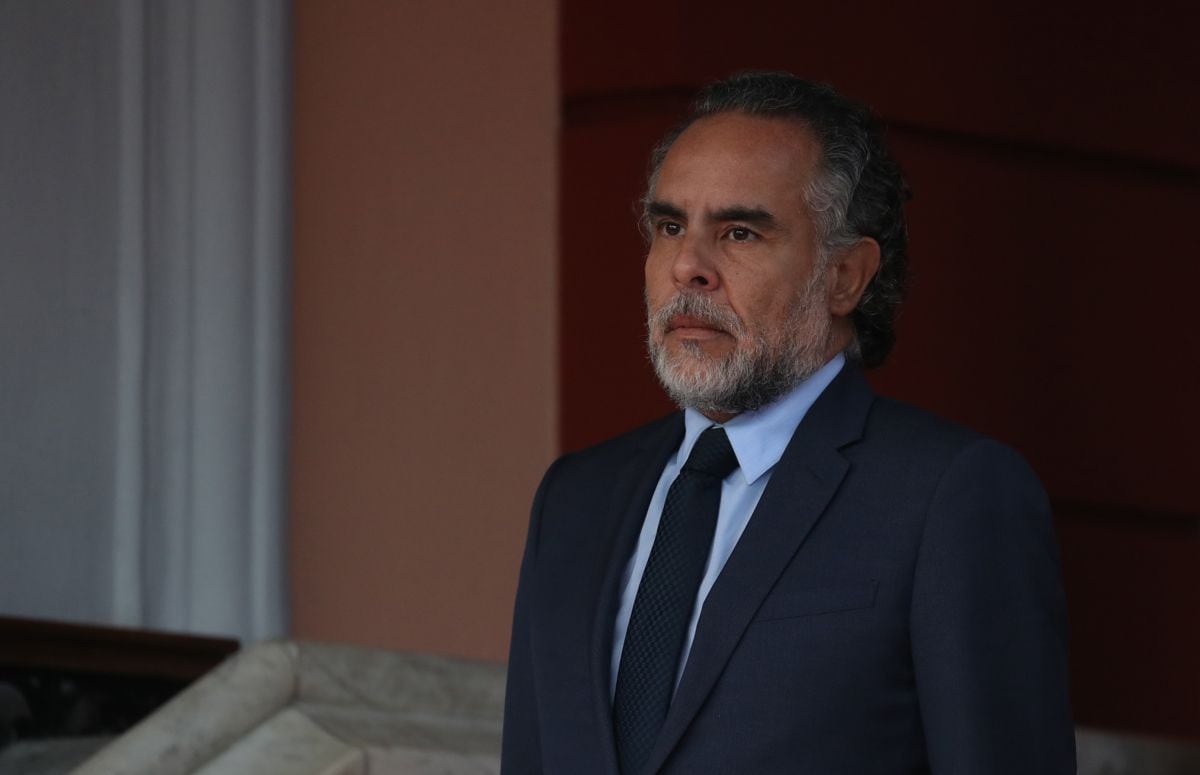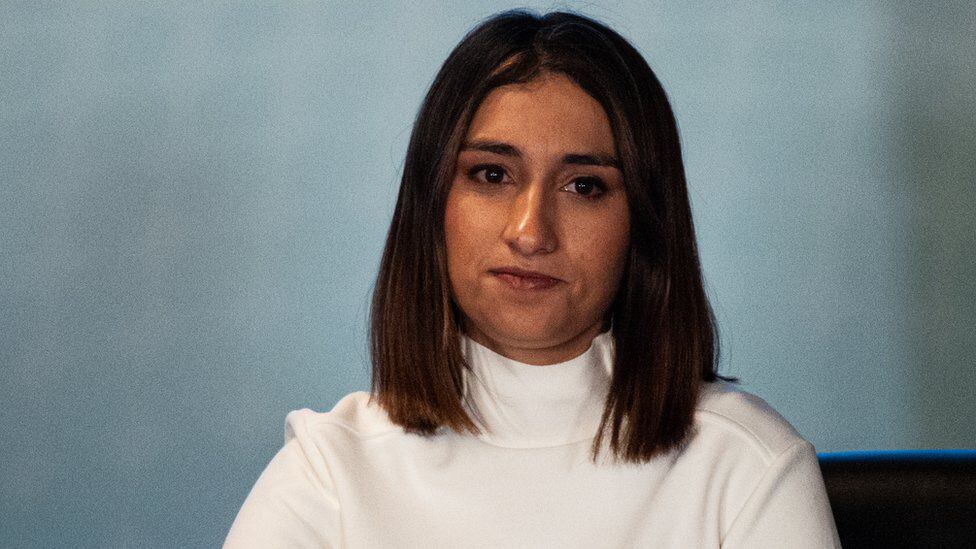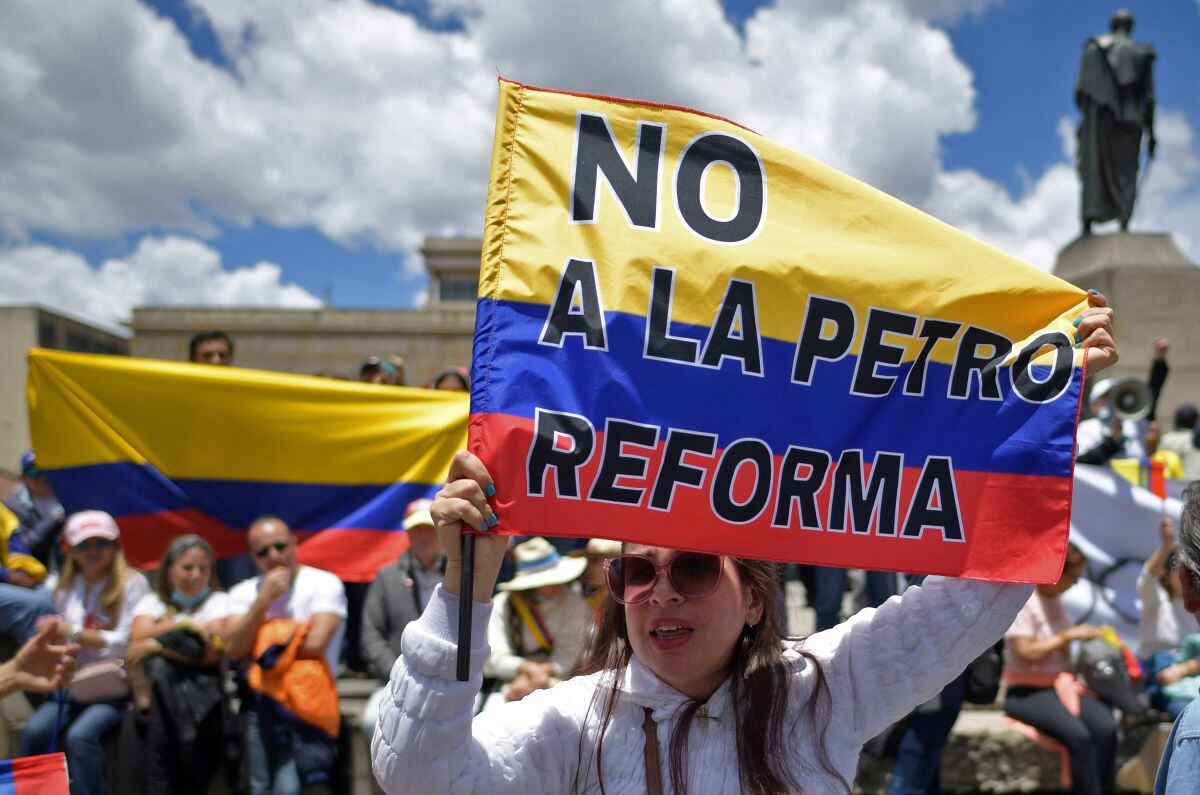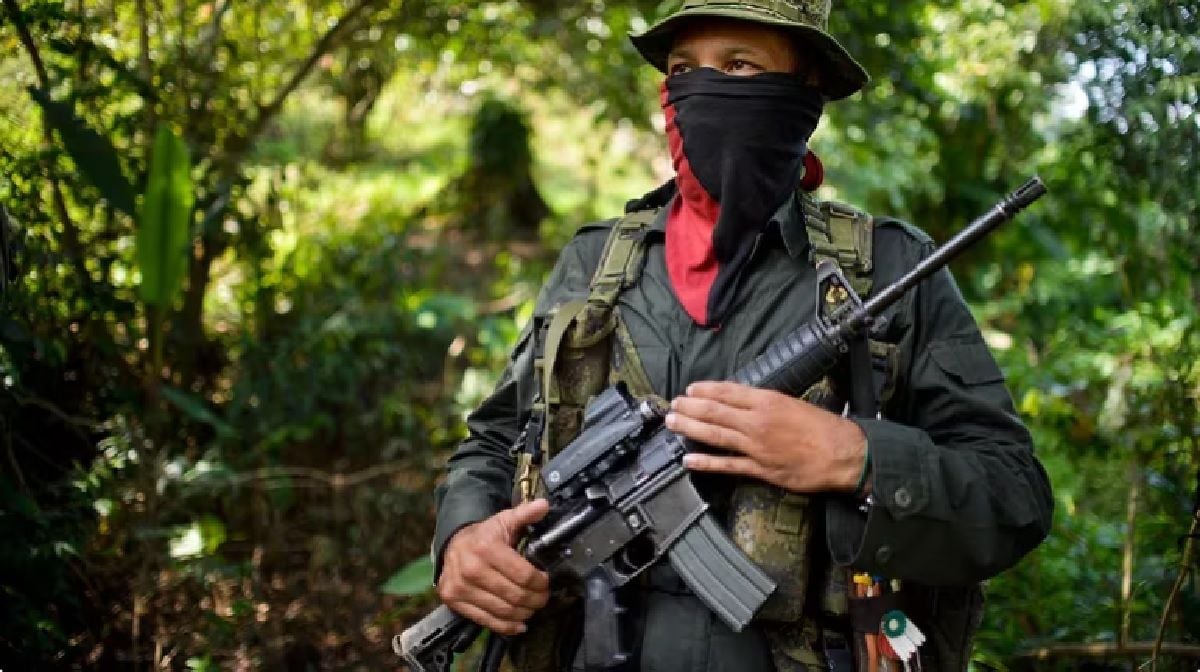This Monday the 7th, Gustavo Petro he completed his first year as president of Colombia. His election was considered a milestone in the country’s political history, as he was the first leftist president in 200 years. His past as an M-19 guerrilla, in addition to his intentions to reform the State and his willingness to reestablish ties with neighboring Venezuela, generated enormous expectations about his management.
LOOK: Petro campaign finance scandal splashes other politicians
Aware of this, Petro wanted these first 12 months to be loaded with symbolism and gestures towards the population. Thus, during his installation ceremony, he ordered that Simón Bolívar’s sword be removed and that the Indigenous Guard accompany the protocol acts ever since.
Symbolism similar to the one he applied during the last week of June, when he ruled from La Guajira, the poorest department in the country, in which he decreed an economic and social emergency.
From the installation ceremony until now, he has not put aside his famous Total Peace plan, key during his campaign for the presidency and with which he seeks to finally end the long history of blood and pain caused by clashes between paramilitaries, guerrillas and the State in Colombia.
In his arrival to power, in addition. he was accompanied by a broad cabinet, made up of allies from a broad spectrum of the Colombian center-left.
Twelve months later, however, the photograph looks quite different. Petro’s first anniversary is marked by a mega-corruption scandal involving him and his eldest son, with fewer and fewer political allies, a Total Peace plan that seems to be based solely on intentions, a package of reforms that has generated social protests and a popularity rating that for the first time has begun to decline.
Last Tuesday, the Colombian Prosecutor’s Office accused Nicolás Petro Burgos, the president’s eldest son and deputy for the department of Atlántico, of alleged money laundering and illicit enrichment.
The scandal against Nicolás broke out in March, after his ex-wife Daysuris Vásquez found out about an infidelity and, in revenge, went before the authorities to accuse him of having received large sums of cash, supposedly destined for his father’s presidential campaign. in 2022, but that actually went into his pocket and he used to give himself a life of luxury in the city of Barranquilla.
According to the investigations, one of the contributors would have been the drug trafficker Samuel Santander Lopesierra.
Petro Burgos was arrested on Saturday, July 29 in Barranquilla along with Daysuris Vásquez, who was also charged. After the presentation of the formal accusation, Petro Burgos requested to become an effective collaborator of justice in exchange for a reduction in his sentence.
The prosecution has for now announced that part of the money received by Nicolás “was invested in the presidential campaign” of his father. The scandal has caused the Investigation and Accusations Commission of the Colombian House of Representatives to initiate an investigation against Gustavo Petro, the same one that could escalate to eventual dismissal.
In less than a week, a domestic burglary investigation became a national scandal.
To understand it, you have to meet two key figures, both in the scandal and in Petro’s path to the presidency. These are Armando Benedetti, a seasoned politician with more than 30 years of experience, formerly president of the Senate, at the time an uribista and also a santista. He was considered a key player in Petro’s campaign.
Years ago, Benedetti decided to hire Laura Sarabia as a private secretary, a young woman from a military family who had studied Political Science and who ended up becoming an official in the Ministry of Defense.

When Petro arrived at the Nariño Palace, he entrusted Benedetti with the function of being ambassador to Venezuela, a key piece in his desire to resume broken relations with Caracas. Sarabia, for her part, became the head of the cabinet at just 28 years old.
The scandal began at the beginning of June, when Sarabia suffered a robbery at home. Almost immediately, the woman marked Marelbys Meza, her children’s nanny who had previously worked at Benedetti’s house, as a suspect.
Later, Sarabia ordered presidential security personnel to take Meza to a basement in front of the presidential palace to be interrogated and subjected to a lie detector test. The case was denounced and the Colombian justice system determined that this practice not only represented the implementation of a parallel judicial system in Colombia, but also that Sarabia had ordered the interception of Meza’s communications.

The nanny, for her part, left for Venezuela aboard a private plane that would have been paid for by Benedetti himself. Subsequently, audios were leaked to the local press in which Benedetti and Sarabia discussed, after the former complained that Petro did not receive or value him despite having been key in his choice.
During the exchange, Benedetti threatens to reveal campaign finance secrets. “We all sink, we all finish, we go to jail”, you hear him say.
The scandal not only led to the immediate resignation of Benedetti and Sarabia from their posts, but also led the National Electoral Council to open an investigation into Petro’s presidential campaign. But, in addition, and perhaps the most serious thing for the current president, is that he brought down the coalition that gave him hope of promoting his reforms.
The Historical Pact immediately came out to condemn the act. The president of the House of Representatives and member of said coalition, David Racero, announced that the discussion on government reforms is “freezing” until the scandals are cleared up.
The Petro government presented itself achieving a reform in record time, after the tax reform was approved on November 3, 2022, which allowed the State to collect taxes for almost 1.2% of GDP, the same that would later be used to implement social programs.
However, the tax was just one of the many reforms that Petro wanted to launch during its first year, including pension, labor and health.
With the impulse of the first reform, in February Petro presented the proposal to reform the health system in Colombia. The project focused on eliminating the membership card and making health a universal right.
The then Minister of Health, Carolina Corcho, was key in the reform. However, her sudden and surprise departure after eight months in office, in which she had clashed with both Liberals and Conservatives, left the government out of the game and invalidated her options for dialogue with the other political camps. This, until now, has put the reform on hold.

As for the pension, it has gone through its first debate in the Senate on June 14. It was a session in which 94 points were approved for a basic text from which the different political forces will negotiate.
A diametrically different story is the one suffered by the labor reform. The same one that was buried in Congress in June due to lack of a quorum – a clear sign of the lack of support that Petro suffers in the Legislative -, and that will be replaced by a new project throughout August.
Without a doubt, Petro’s most ambitious project since his campaign. The president has promised to sit down and talk with all those involved in the eternal spiral of violence that has plagued Colombia for decades.
A few months after assuming the presidency, that promise became law and led the government to establish a negotiating table both with the National Liberation Army (ELN), the last great Colombian guerrilla, and with the Central General Staff. (EMC) an armed group that split from the FARC before the famous Peace Agreement signed in 2016 by said guerrilla and the government of Juan Manuel Santos.
However, the path to the table has generated various criticisms for the concessions that have been offered from the Palacio de Nariño to the guerrillas, especially aggravated by missteps such as the one the president took in January, when he assured that he had agreed to a halt to the fire with five armed groups, including the ELN itself, which was denied two days later by the guerrillas.

Or when he issued a letter to the Attorney General of the Nation, Francisco Barbosa, requesting that he suspend the arrest warrants against members of the EMC, since they would be the guerrilla representatives to start a first round of negotiations. On said list, however, there were names questioned for not being dissidents but deserters or for even already being imprisoned for other crimes.
in conversation with Trade, the professor and researcher at the Universidad del Rosario Mauricio Jaramillo Jassir explains that he identifies as a failure that the government tries to open so many fronts for dialogue at the same time. “ANDhe government has formed a front with everyone: pre-agreement dissidents, post-agreement dissidents, the ELN, and is debating whether to give political status to neo-paramilitary groups. The government opened many fronts and I don’t know if it is capable of addressing them all”. comment.
Today, after a year in power, none of the roundtables opened by the Petro government seem to have achieved any measurable progress.
This series of setbacks has undoubtedly permeated the image of Petro, who had come to power enjoying 56% popular support and today is disapproved by 61% of the population, according to the latest Invamer Poll survey.
Source: Elcomercio
I am Jack Morton and I work in 24 News Recorder. I mostly cover world news and I have also authored 24 news recorder. I find this work highly interesting and it allows me to keep up with current events happening around the world.

:quality(75)/cloudfront-us-east-1.images.arcpublishing.com/elcomercio/TUYDV64JGNHO5N3YO4DC2YR2FE.jpg)

:quality(75)/cloudfront-us-east-1.images.arcpublishing.com/elcomercio/XRWUTS24GRER5FOUGJQ2WFDLPM.jpg)
:quality(75)/cloudfront-us-east-1.images.arcpublishing.com/elcomercio/WEIOKAAIMVAEZE2DU2DC53AHRU.png)


